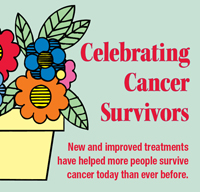 Technology can send a man to the moon, help unlock the secrets of DNA and let people around the world easily communicate through the Internet. But can it substitute for nature?
Technology can send a man to the moon, help unlock the secrets of DNA and let people around the world easily communicate through the Internet. But can it substitute for nature?
Apparently not, according to a new study that measured individuals’ heart recovery rate from minor stress when exposed to a natural scene through a window, the same scene shown on a high-definition plasma screen, or a blank wall. The heart rate of people who looked at the scene through the window dropped more quickly than the others. In fact, the high-definition plasma screen had no more effect than the blank wall. [continue reading…]
June 2008
UT Southwestern Medical Center psychiatry researchers have taken what they learned from their groundbreaking research on treating depression and are applying it to real-world clinical settings.
The Sequenced Treatment Alternatives to Relieve Depression (STAR*D) study was the largest ever on the treatment of major depressive disorder and is considered a benchmark in the field of depression research. The six-year, $33 million study initially included more than 4,000 patients from clinics across the country.
STAR*D provided evidence for step-by-step guidelines to address treatment-resistant depression and found that half of depressed patients became symptom-free or had major improvement after the first two treatments with medication [continue reading…]
 More people in the U.S. are living longer after a cancer diagnosis. For this increasing number of cancer survivors, living a better quality of life is just as important as living through the disease. Improving communication and acknowledging stress can enhance the quality of life of cancer survivors and those who support them.
More people in the U.S. are living longer after a cancer diagnosis. For this increasing number of cancer survivors, living a better quality of life is just as important as living through the disease. Improving communication and acknowledging stress can enhance the quality of life of cancer survivors and those who support them.
“Connecting with others can be vital to effectively adapt to what many term as a ‘new normal’,” said Frances A. Zandstra, RN, OCN, director of the Cancer Survivorship Program at The University of Texas M. D. Anderson Cancer Center. [continue reading…]
Mayo Clinic research suggests unmarried women living in rural areas have lower self-rated health status than their married counterparts. This lower health status often includes greater instances of self-assessed feelings of depression. The results of the study were recently published in the Journal of Evaluation in Clinical Practice. They suggest that primary care physicians should take a proactive role in addressing health concerns of single women.
“We tend to focus on disease, but as the World Health Organization notes, good health includes physical, mental and social well-being and not merely the absence of disease,” says James Rohrer, Ph.D., of Mayo Clinic’s Department of Family Medicine and lead author of the study. “Being single may be associated with a greater degree of separation from usual health care, as many women gain insurance through a spouse or a former spouse. Lack of social support also may contribute to poor health among some single women.” [continue reading…]
